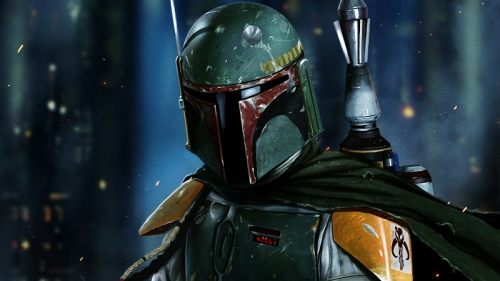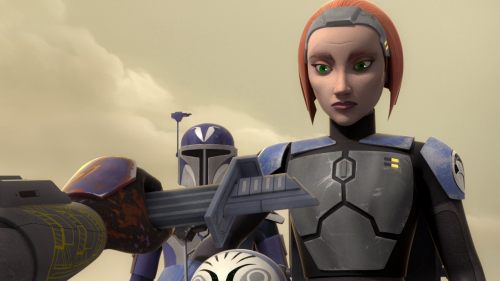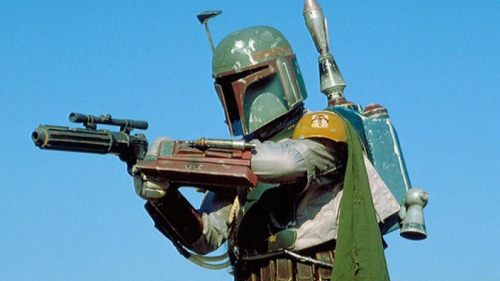Kanye West, STAR WARS and the Future of Movies
A bit of cutural kismet blipped into existence last week. Despite Kanye West’s promise that The Life of Pablo would "never never never be on Apple" and "it will never be for sale…" and "you can only get it on Tidal" his eighth studio album is now available to stream on Apple Music, Google Play Music and Spotify and available for download at kanyewest.com. On the same day, another big release bowed on every digital distribution platform in the galaxy: Star Wars: The Force Awakens. The important link between Pablo and Star Wars isn't that they became available to own on the same day, it's their shared histories in redefining what's considered a finished piece of creative work, a definition realized by the perfectionism of their respective creators and one that informs the possible future of movies.
As with anything involving Kanye, there was a lot of ruckus in the lead up to Pablo's release. The ball got rolling on New Year's Eve when he debuted the Nike diss track "Facts". In the ensuing six weeks he previewed tracks on Twitter, announced the completion of the album—originally called SWISH—via a handwritten tracklist, changed the album name to WAVES with a new track list, announced a fashion show to debut the album, changed the name of the album a second time to its current title, updated the tracklist again, delayed the release of the album by blaming Chance the Rapper, announced on Saturday Night Live that the album was available for download on his website, and at the last minute changed his mind and made it a streaming exclusive on TIDAL. It was a circus for sure and epitomized all the good and bad facets of Kanye as genius artist and maniacal celebrity, but it didn't stop there.
Soon after the album hit TIDAL, Kanye announced he was going to fix the track "Wolves". It was an unexpected twist because the album was presumably finished; it was released to the masses just a day prior. Why fix a track for an album that's done? For Kanye, the answer was the answer to most things he does: because he can. If an album exists solely as a streaming piece of media why not update it until he feels the album is complete. Whether or not treating this album as updateable software was his original intention or if it was a byproduct of a blown deadline, it's a revolutionary idea—the impact of which was dulled by all the other noise surrounding the album. In the upcoming months, according to a press release issued by Universal Music, "Kanye will release new updates, new versions, and new iterations of the album". They call it "an innovative, continuous process," and claim "the album will be a living, evolving art project". Even before this announcment made it official, the album was already on its third version with a slew of changes big and small.
This evolutionary process for a "finished" piece of work brings to mind George Lucas' infamous approach on the special editions of the original Star Wars trilogy. His history of tinkering with the OT is well-documented and mostly hated. Not hated solely for what he's done to them, but that he's made the original versions non-existent. Even going so far as saying that the most current version of the trilogy is the "final cut". He's hoping to ensure that this final cut is the only one available by having authority and time on his side. Lucas has kept any existing film prints of the untouched trilogy and reportedly confiscates any reels that surface. Even the National Film Registry was denied the 1977 version of Star Wars to preserve in their archives. They were told that Lucas would no longer authorize the release of the orginal versions. For the 35 million VHS tapes that exist of the orignal versions, he is relying on time to slowly erase them from history since tape media "won't last more than 30 or 40 years". To him, a hundred years from now the special editions will be "the only version of the movie that anyone will remember".
Despite the fan outcry and millions in cost, the biggest hurdle for George Lucas in making the special editions the definitive versions is their existence on physical media. And that's where Kanye West comes in. His approach to updating Pablo is a likely precursor to what's possible for movies—especially as we move more and more towards streaming platforms like Netflix or digital media stores like iTunes. In the future, a filmmaker wanting to update their film will just need to replace a central file (barring, of course, any legal or budgetary constraints). It's all upside for the filmmaker, but for audiences who prefer previous versions—much like the Despecialized Edition culture clinging to the OG OT—there's not much hope. It's a future that will get more entangled in the sticky issue around the ownership of creative work. If an artist wants to update their art who are we to say no? It's a future that will likely embrace the idea of creative work as software, where we can expect a changelog included with each update. It feels icky, but it's inevitable. It's a future that was foretold by a filmmaker tinkering with his past. Now it's being cemented by an artist embracing the future.



